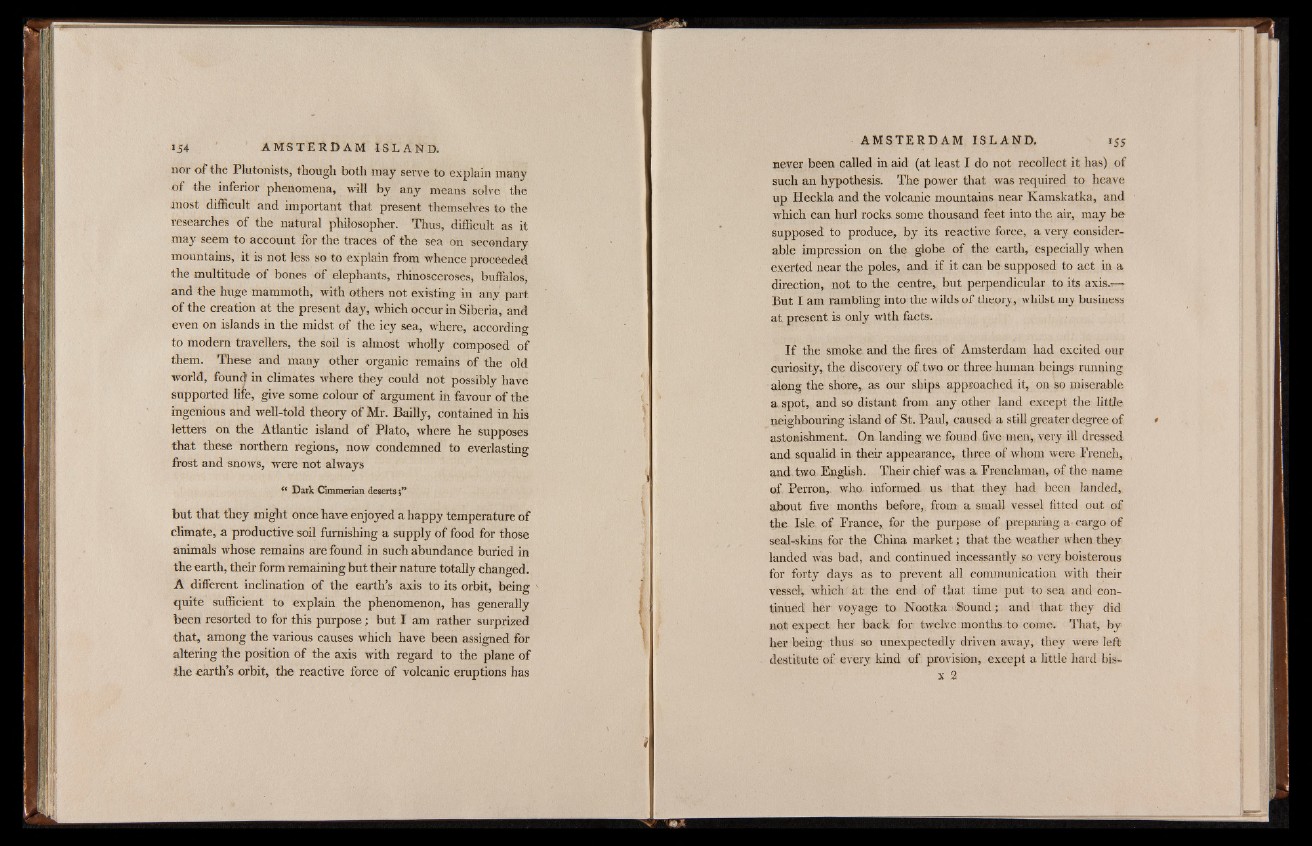
nor of the Plutonists, though both may serve to explain many
of the inferior phenomena, will by any means solve the
most difficult and important that present themselves to the
researches of the natural philosopher. Thus, difficult as it
may seem to account for the traces of the sea on secondary
mountains, it is not less so to explain from whence proceeded
the multitude of bones of elephants, rhinosceroses, buffalos,
and the huge mammoth, with others not existing in any part
of the creation a t the present day, which occur in Siberia, and
even on islands in the midst of the icy sea, Where, according
to modern travellers, the soil is almost wholly composed of
them. These and many other organic remains of the old
world, found in climates where they could not possibly have
supported life, give some colour of argument in favour of the
ingenious and well-told theory of Mr. Bailly, contained in his
letters on the Atlantic island of Plato, where he supposes
that these northern regions, now condemned to everlasting
frost and snows, were not always
t( Dark Cimmerian deserts
but that they might once have enjoyed a happy temperature of
climate, a productive soil furnishing a supply of food for those
animals whose remains are found in such abundance buried in
the earth, their form remaining but their nature totally changed.
A different inclination of the earth’s axis to its orbit, being
quite sufficient to explain the phenomenon, has generally
been resorted to for this purpose; but I am rather surprized
that, among the various causes which have been assigned for
altering the position of the axis with regard to the plane of
the earth’s orbit, the reactive force of volcanic eruptions has
never been called in aid (at least I do not recollect it has) of
such an hypothesis. The power that was required to heave
up Heckla and the volcanic mountains near Kamskatka, and
which can hurl rocks, some thousand feet into the air, may be
supposed to produce, by its reactive force, a very considerable
impression on the globe of the earth, especially when
exerted near the poles, and if it can be supposed to act in a
direction, not to the centre, but perpendicular to its axis.^-*
But I am rambling into the wilds of theory, whOst my business
at. present is only with facts'.
I f the smoke and the fires of Amsterdam had excited our
curiosity, the discovery of two or three human beings running
along the shore, as our ships approached it, on so miserable
a. spot, and so distant from any other land except the little
neighbouring island of St. Paul, caused a still greater degree of *
astonishment. On landing we found five men, very ill dressed
and squalid in their appearance, three of whom were French,
and two. English. Their chief was a. Frenchman, of the name
of Perron, who. informed us that they had been landed,
about five months before,, from a small vessel fitted out of
the Isle of France, for the purpose of preparing a. cargo of
seal-skins for the China market; that the weather when they
landed was bad, and continued incessantly so very boisterous
for forty days as to prevent all communication with their
vessel, which at the end of that time put to sea and continued
her voyage to Nootka ¿Sound; and that they did
not expect her back for twelve months to come. That, by
her being thus so unexpectedly driven away, they were left
destitute of every kind of provision, except a little hard bis-
-Ai- Aa